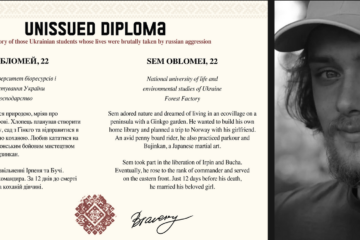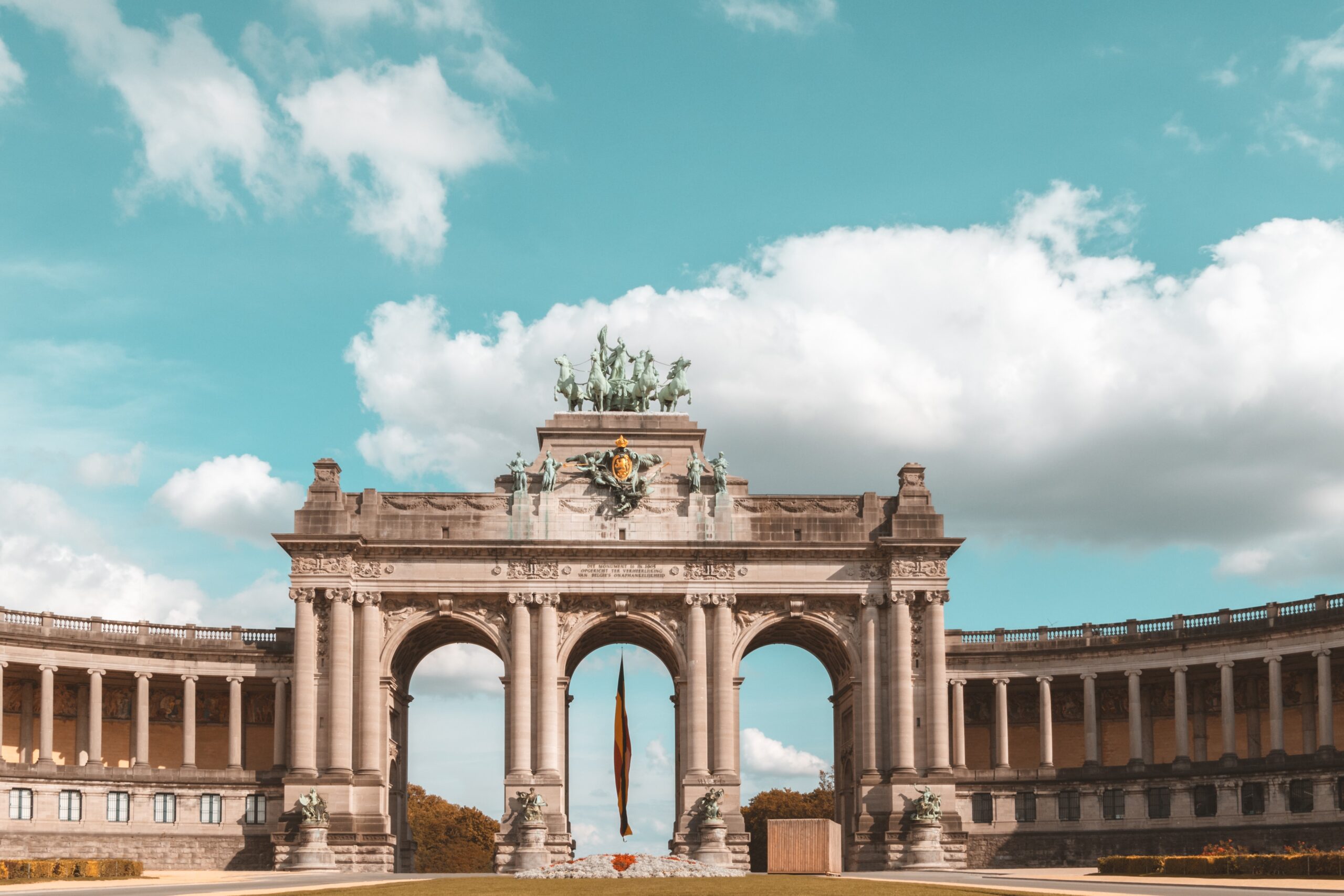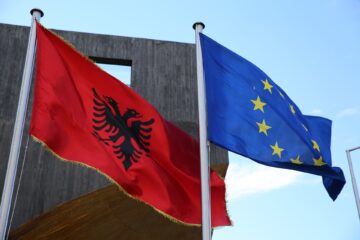On the 3rd of August 2022 the ANU Centre for European Studies hosted Ukrainian President Volodymyr Zelenskyy in an interactive address to Australian students. In only his second address to Australians, Zelenskyy spoke live to students in Llewellyn Hall at ANU and across the country, answering their questions on the war in Ukraine that has continued since 2014 and escalated after Russian invasion into Ukraine in February this year.
In reading about the event in the Washington Post or on the ABC the following day, one could learn that 21 universities across Australia were in attendance online, and the event has since been streamed over 50 000 times.
What these articles and livestreams don’t capture, however, is how it felt as students to sit in your own university hall—a space associated with first year lectures and Open Day events—and have your questions answered in real time by an incumbent wartime president. Sitting in the at-capacity hall, it was hard to believe that we were about to be face-to-face with the President of Ukraine.
The silence was immediate as the event began. Zelenskyy appeared on screen and began his address, referencing Australia’s support, which now includes $390 million in aid, and mentioning Anthony Albanese by name. Clearly, this was no recycled speech by an understandably preoccupied president.
The live Q&A that followed reinforced that Zelenskyy was not only talking to us, but with us. Furthermore, students showed their engagement in more ways than one. When Zelenskyy answered a question about China’s (lack of) involvement in the war, students pulled out their phones to record his response. Later, students tittered as Zelenskyy’s face contorted in response to a question on the future of Russia-Ukraine relations. The laughter subsided as Zelenskyy delivered a poignant response on how ‘every family has lost something, no one will forget’, commenting that such a question ‘belongs only to [Russia], only to them’. But the question that got the most audible response from the hall was one on the importance of Ukraine’s recent Eurovision victory. Zelenskyy’s thoughtful response touched on the importance of music during war: ‘Culture, sport and science have great significance in times of war, even more than in peace time. … This is a victory in all directions for us.’
In answering this question, Zelenskyy also answered the larger question on many students’ minds, a question that remained unasked: Why had a wartime president reached out to a student population half the world away, taking on questions from Australians on the importance of Eurovision? By addressing such questions from students, Zelenskyy revealed his ability to look beyond—beyond Ukraine and Russia to Australia, beyond war to music and science, and beyond the overwhelming demands of the present into the future. Zelenskyy’s ANU address was an historic and unique event, not only because of its size and interactivity, but because of Zelenskyy’s demonstration of what it means to be a 21st century wartime leader.


